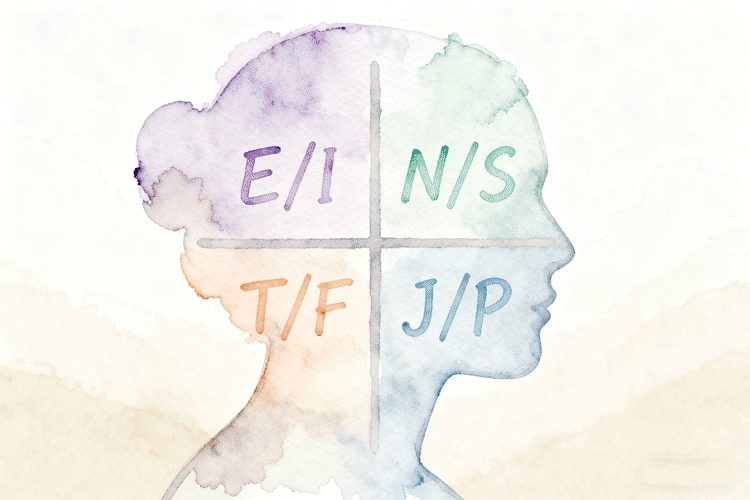This article explores the topic of “Ed Gein MBTI” from a psychological and educational perspective, analyzing how personality frameworks like MBTI are often misused to explain extreme criminal behavior and why true psychological understanding goes far beyond typology labels.
Introduction: Why the “Ed Gein MBTI” Topic Attracts So Much Curiosity
The search term “Ed Gein MBTI” has become a frequent topic among psychology enthusiasts, true crime followers, and internet communities discussing personality theories. However, it raises an important question — can we really classify individuals like Ed Gein, a historical criminal figure, through the lens of MBTI, a non-clinical personality model?
Before diving deeper, it’s crucial to note that MBTI (Myers-Briggs Type Indicator) is not a psychological diagnostic tool. It was never designed to explain or categorize pathological or criminal behavior. Still, exploring the “Ed Gein MBTI” topic can help us understand how society interprets personality, morality, and psychological complexity through typology systems.
This article will analyze:
What MBTI is and what it is not Why “Ed Gein MBTI” became a popular online topic How misconceptions about personality types arise The ethical and psychological implications of labeling extreme cases What the discussion reveals about our collective fascination with personality and evil
What Is MBTI — And Why It Doesn’t Define Criminality

To understand **“Ed Gein MBTI”**, we must first understand the Myers-Briggs Type Indicator. MBTI categorizes individuals into 16 personality types based on four dichotomies:
Extraversion (E) / Introversion (I) Sensing (S) / Intuition (N) Thinking (T) / Feeling (F) Judging (J) / Perceiving (P)
Each combination — such as INFJ, ESTP, or INTJ — reflects cognitive preferences, not morality or mental health status. The MBTI framework is widely used in workplaces, education, and personal development, but it lacks clinical validity for diagnosing psychological disorders or explaining violent tendencies.
When people online discuss **“Ed Gein MBTI”, they often confuse behavioral patterns with cognitive preferences**. For example:
Introversion does not equal social isolation. Intuition does not mean detachment from reality. Feeling types are not inherently more emotional or unstable.
This misunderstanding fuels online speculation about what MBTI type Ed Gein “might have been,” ignoring the scientific boundaries of personality theory.
The Fascination Behind “Ed Gein MBTI”: A Cultural Reflection
The popularity of the “Ed Gein MBTI” keyword highlights a broader cultural phenomenon — our collective need to make sense of evil through psychological language. People often turn to personality models like MBTI because:
They simplify complex behavior. They offer a structured way to understand the incomprehensible. They bridge entertainment (true crime) and psychology.
However, reducing Ed Gein to an MBTI type oversimplifies a deeply pathological reality. His actions were rooted in severe trauma, delusion, and probable psychosis — conditions far beyond MBTI’s descriptive scope.
The online discussions around “Ed Gein MBTI” therefore tell us less about Gein himself and more about how society seeks order in chaos. We use labels like ENFP, INTJ, or ISTP as psychological shorthand — not to understand, but to categorize.
Why MBTI Shouldn’t Be Used to Explain Criminal Behavior
Although MBTI is a powerful tool for personal growth and interpersonal understanding, it cannot explain extreme or criminal psychology. Let’s break down why the “Ed Gein MBTI” discussion is methodologically flawed:
1. MBTI Measures Preference, Not Pathology
MBTI assesses how people prefer to process information and make decisions, not whether they are capable of moral judgment or violence.
2. Criminal Psychology Requires Clinical Assessment
Forensic psychologists rely on tools like the DSM-5 and structured interviews, not MBTI tests, to assess disorders such as antisocial personality disorder, psychosis, or trauma-induced delusions.
3. MBTI Ignores Environmental and Developmental Factors
Personality development is influenced by genetics, upbringing, and trauma. The MBTI framework doesn’t account for abuse, neglect, or mental illness — all critical in understanding cases like Ed Gein’s.
Therefore, while “Ed Gein MBTI” remains an intriguing phrase for SEO and discussion, it should always be approached critically and ethically.
The Psychological Appeal of Typing “Dark Personalities”
Even though it’s scientifically inappropriate, people continue to type infamous individuals through MBTI systems. Why?
Curiosity About the Human Mind
Humans are drawn to moral paradoxes. Typing figures like Ed Gein through MBTI allows people to rationalize irrational acts and feel some control over their emotional response.
The Illusion of Understanding
Assigning a label like “INTJ” or “ISTP” creates a sense of order — as if labeling could explain motive. In reality, it simplifies complex disorders into comfortable stereotypes.
Social Media Echo Chambers
Platforms like Reddit, TikTok, and YouTube amplify the “Ed Gein MBTI” trend through discussions, memes, and speculative videos. These discussions blur the lines between psychology and entertainment, making it easy to forget the ethical implications of such labeling.
The Responsible Way to Discuss “Ed Gein MBTI”
Instead of asking, “What MBTI type was Ed Gein?”, we should ask:
““What does our obsession with labeling figures like Ed Gein say about us?”
”
This reframing leads to more ethical and insightful discussions. Here’s how we can responsibly engage with the “Ed Gein MBTI” topic:
Use MBTI for Understanding, Not Diagnosis MBTI can help explore normal human diversity — how people think, feel, and relate — but it cannot define moral capacity. Recognize the Boundaries of Pop Psychology It’s important to distinguish between clinical psychology (science) and personality typology (self-awareness tool). Promote Empathy and Education Discussing topics like “Ed Gein MBTI” responsibly can educate people about trauma, mental illness, and ethical research practices.
MBTI, Morality, and the Limits of Typology
One key takeaway from the “Ed Gein MBTI” discourse is the limit of typological thinking. Personality is multi-dimensional — not something that can be fully captured by four letters.
While MBTI provides useful insights for self-discovery, it cannot:
Predict behavior under stress or trauma Explain psychopathology Substitute clinical evaluation
The risk of overreliance on MBTI labels is moral reductionism — assuming that a “type” explains goodness or evilness. True psychological understanding requires deeper study into motivation, empathy, and neuropsychological health.
Lessons from the “Ed Gein MBTI” Discussion
Reflecting on why people seek MBTI labels for figures like Ed Gein reveals profound lessons about society and psychology:
We crave order in chaos. We misunderstand the purpose of psychological tools. We often mistake categorization for comprehension. We use personality language to distance ourselves from discomfort.
The “Ed Gein MBTI” topic is ultimately not about Ed Gein — it’s about us and our desire to make sense of human darkness.
Conclusion: Beyond Labels — Toward Real Understanding
The “Ed Gein MBTI” trend highlights the intersection of popular psychology, true crime culture, and digital curiosity. Yet it also exposes the dangers of simplifying human behavior into personality types.
MBTI remains valuable when used correctly — as a tool for understanding healthy personality differences. But when misapplied to extreme or pathological cases, it loses meaning and risks spreading misinformation.
There is no verified MBTI type for Ed Gein. MBTI is not a diagnostic tool and cannot accurately describe criminal behavior.
Many are curious about the link between personality and morality. However, this interest often reflects cultural fascination rather than scientific analysis.
No. MBTI measures cognitive preferences, not psychological disorders or moral capacity.
With caution and education — using it to discuss the limits of typology, not to label or excuse extreme behavior.





